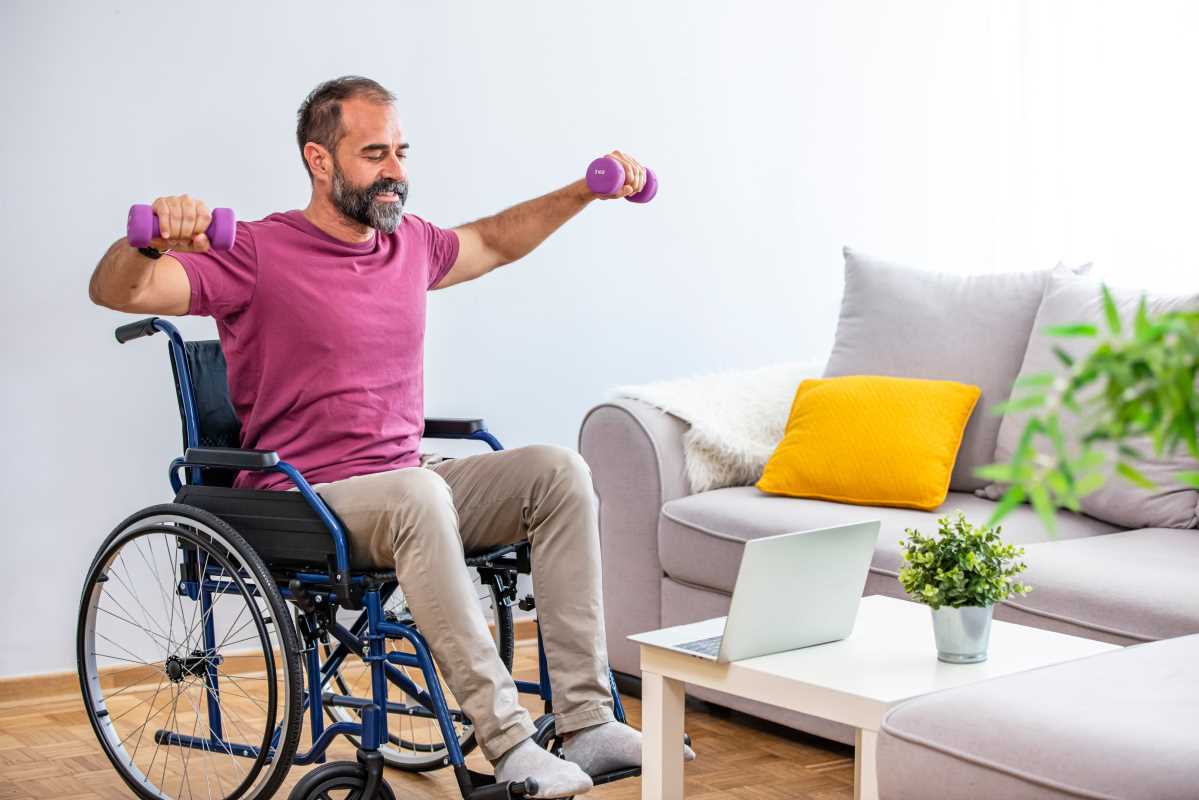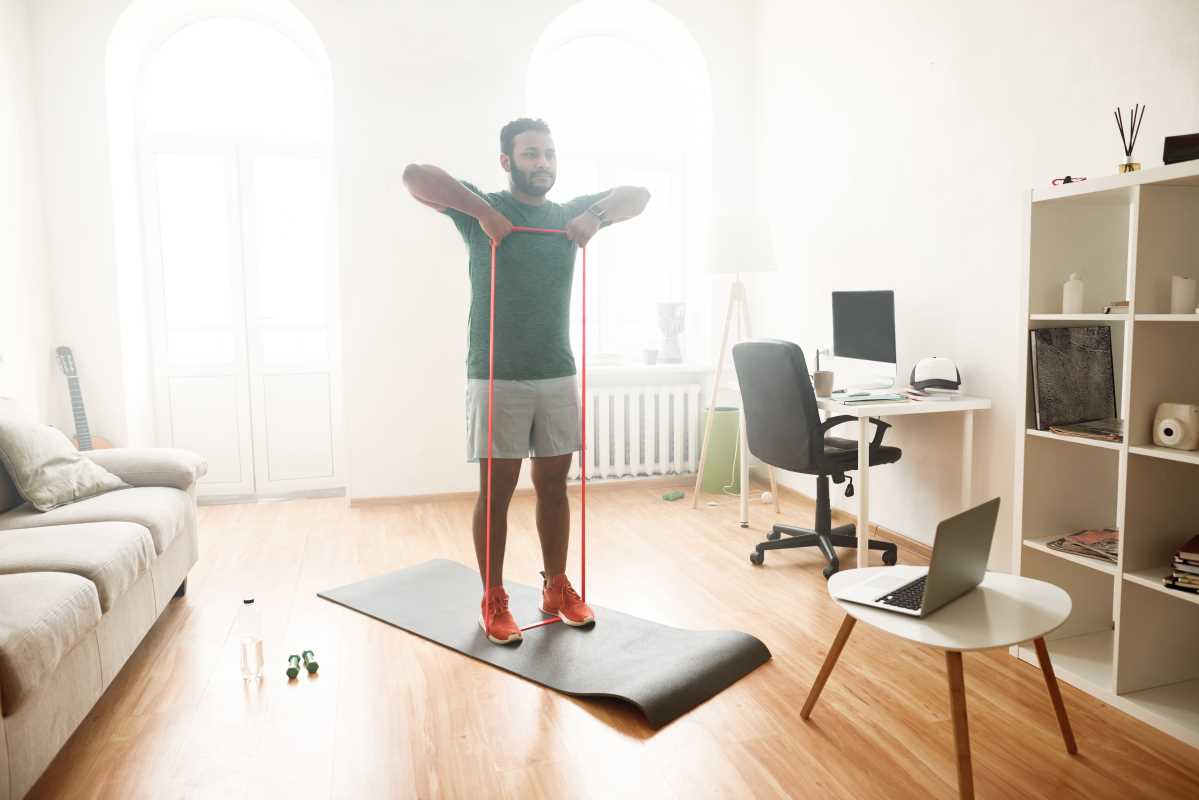Losing weight is already a challenging process for many, but it can feel even more daunting for individuals with mobility issues. Limited mobility can pose unique obstacles, such as difficulty exercising or accessing certain resources, but it doesn’t mean weight loss is out of reach. By focusing on tailored strategies and leveraging the right resources, individuals with mobility challenges can achieve their weight loss goals in a way that works for their bodies and lifestyles.
This article will explore practical solutions, exercises, and tips to help you shed pounds, improve your health, and boost your confidence—all while working within the bounds of your body's capabilities.
Understanding the Challenges
People with mobility issues often face barriers that others may not encounter. For example:
- Restricted Exercise Options: Traditional methods like running or gym workouts may not be feasible, limiting access to high-calorie-burning physical activities.
- Adaptive Equipment Costs: Specialized equipment can be expensive, making certain tools inaccessible.
- Health Conditions: Mobility issues are often linked to chronic pain, arthritis, or other medical conditions that make consistent movement difficult.
- Mental Health Struggles: Limited mobility can lead to feelings of frustration or helplessness, which may impact motivation and emotional eating patterns.
- It’s important to acknowledge these challenges while understanding that weight loss is still possible with a combination of smart planning, the right tools, and a positive mindset.
The Role of Nutrition
When mobility is limited, nutrition becomes the foundation of weight loss. After all, weight management ultimately comes down to calories consumed versus calories burned. Adopting healthy eating habits without drastic restrictions is key to sustainable progress.
Tips for Focusing on Nutrition
- Track Your Food Intake: Use a food journal or app to monitor what you eat and identify areas for improvement. This isn’t about perfection—it’s about awareness.
- Prioritize Nutrient-Dense Foods: Focus on whole foods like fruits, vegetables, lean proteins, and whole grains that keep you full and satisfied without excessive calories.
- Mind Portion Sizes: Be mindful of portions, especially with calorie-dense foods like nuts, oils, and snacks. Opt for smaller plates to practice portion control easily.
- Stay Hydrated: Often, thirst is mistaken for hunger. Drinking plenty of water can help curb unnecessary snacking.
- Limit Added Sugars and Processed Foods: These offer little nutritional value and can contribute to weight gain. Try replacing sugary snacks with naturally sweet options, like fresh or dried fruit.
By focusing on nutrition, you can make meaningful progress without relying on rigorous physical activity alone.
Incorporating Low-Impact Activities
Exercise remains a critical component of any weight loss plan, even if mobility is limited. Low-impact and adaptive exercises can make moving your body both achievable and enjoyable. Movement not only burns calories but also improves strength, flexibility, and mental well-being over time.
Examples of Low-Impact Activities
Seated Workouts: Chair-based exercises are excellent for those who cannot stand for long periods or have difficulty balancing. You can do seated leg lifts, upper body stretches, or resistance band movements to build muscle and boost your heart rate.
Water Aerobics or Swimming: The buoyancy of water reduces pressure on joints, making water-based exercises perfect for people with arthritis or mobility challenges. Engaging in water aerobics or simply swimming laps can burn calories and improve cardiovascular health.
Resistance Band Training: Lightweight and versatile, resistance bands can be adapted for many mobility levels. Use them for gentle strength exercises that target the arms, legs, and core.
Hand Pedal Machines: Equipment like hand cycles allows you to perform cardio from a seated position, focusing on the upper body to keep your blood pumping.
Stretching and Yoga: Adaptive yoga or flexibility routines focused on seated or lying-down positions can help maintain a full range of motion while relieving tension and promoting relaxation.
Even small, consistent movements add up over time. Choose activities that feel comfortable, and don’t push your body beyond its limits.
Setting Realistic Goals
With mobility issues, weight loss might happen more slowly than for someone without physical limitations. The key is to set realistic and achievable goals to stay motivated.
- Start by aiming for a small, incremental loss of 1-2 pounds per week.
- Break your larger goal into smaller milestones, celebrating your progress along the way.
- Focus on non-scale victories too, like increased energy, improved sleep, or completing a specific workout without pain.
- Remember, success is about being consistent, not being perfect.
Seek Professional Guidance
A healthcare professional or fitness specialist can design a weight loss plan tailored to your specific needs and limitations. Here’s how they can help:
- Registered Dietitians: They can create a meal plan that suits your nutritional needs, keeping in mind any medical conditions.
- Physical Therapists: These experts can recommend safe and effective exercises for your mobility level.
- Certified Personal Trainers: Some specialize in adaptive fitness and can guide you through a customized program.
Don’t hesitate to ask for guidance—it’s a sign of strength and sets you up for long-term success.
Maintaining a Positive Mindset
Weight loss is as much a mental challenge as it is physical. Staying positive, even when progress is slow, is crucial for maintaining motivation.
Focus on what your body can do, rather than what it can’t.
Surround yourself with supportive friends, family, or online communities. Knowing others are cheering for you makes a big difference.
Practice mindfulness or meditation to manage stress and reduce emotional eating triggers.
A positive mindset keeps you grounded and committed, even during setbacks.
The Benefits of Weight Loss for Those with Mobility Issues
For individuals with mobility challenges, losing weight can significantly enhance quality of life by easing strain on joints, reducing pain, and improving overall health. Other benefits include:
- Decreased risk of chronic conditions like diabetes and heart disease.
- Enhanced mobility (even a small amount of weight loss can make movement easier).
- Better mood and mental health, stemming from increased energy levels and self-confidence.
- Even modest weight loss can yield meaningful improvements in day-to-day living, making every effort worthwhile.
Losing weight with mobility issues is not just about shedding pounds—it’s about improving your health, confidence, and quality of life. By combining smart nutrition choices, low-impact exercises, and a supportive mindset, you can overcome the challenges and achieve your goals sustainably. With patience and persistence, progress is possible—one step, or rep, at a time.
 (Image via
(Image via





